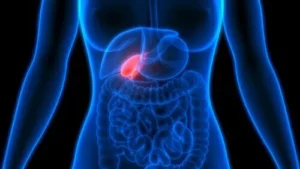First it is important to understand the function of the gallbladder. The gallbladder is an important organ related to digestive function in the body, working with the liver to ensure proper breakdown and absorption of fats. Its primary role is to concentrate and store bile created in the liver. It then releases bile into the small intestine, where digestion and absorption of fats takes place.

Bile salts are a primary component of bile, making them essential for digestion and absorption of fats, as well as absorbing fat-soluble vitamins and eliminating toxins from the body. When not in use, bile salts are stored in your gallbladder. When the gallbladder is removed, it can lead to a bile salt deficiency, making it difficult to digest and absorb fats, fat soluble vitamins, and effectively eliminate toxins. Bile salts also bind to receptors in the gut that help regulate the microbiome as well as cells that regulate our immune system.
Some of the immediate effects patients experienced after gallbladder removal include diarrhea, fatty food intolerances, gas, indigestion, heartburn, and nausea/vomiting. While not everyone experiences any of these symptoms, they are quite common. These effects can lead to further imbalances and complications long term.
While it may not seem important to be able to digest and absorb fats, they are a crucial part of our metabolic function, and our cells depend on them. Fat soluble vitamins are also affected by the inability to absorb fats. For example, Vitamin D deficiency is common in patients that have had their gallbladder removed and are not taking any type of digestive enzymes or bile salts. This condition can lead to adverse health effects. Vitamins A, D, E, and K, are fat soluble vitamins and each have a crucial role to play in the body. These fat-soluble vitamins play an active role in brain health, promote hormone function, maintain cellular integrity, and many other bodily functions.
These health issues can be easily managed to prevent adverse health effects by consulting with a qualified medical provider that understands how to effectively support your gastrointestinal health.
Our team of providers can help find solutions for your gut health. Make an appointment to find out how we can help.
